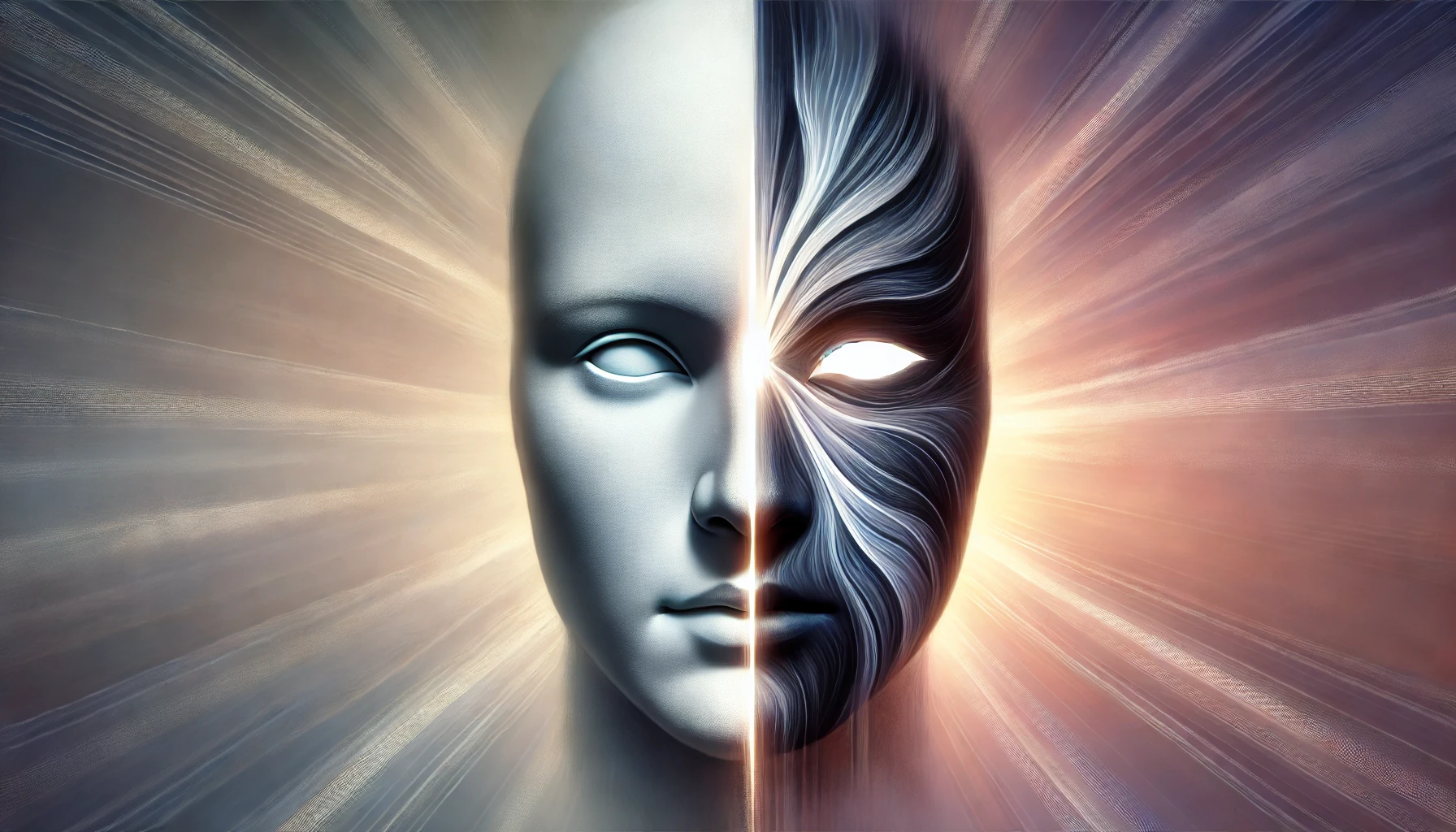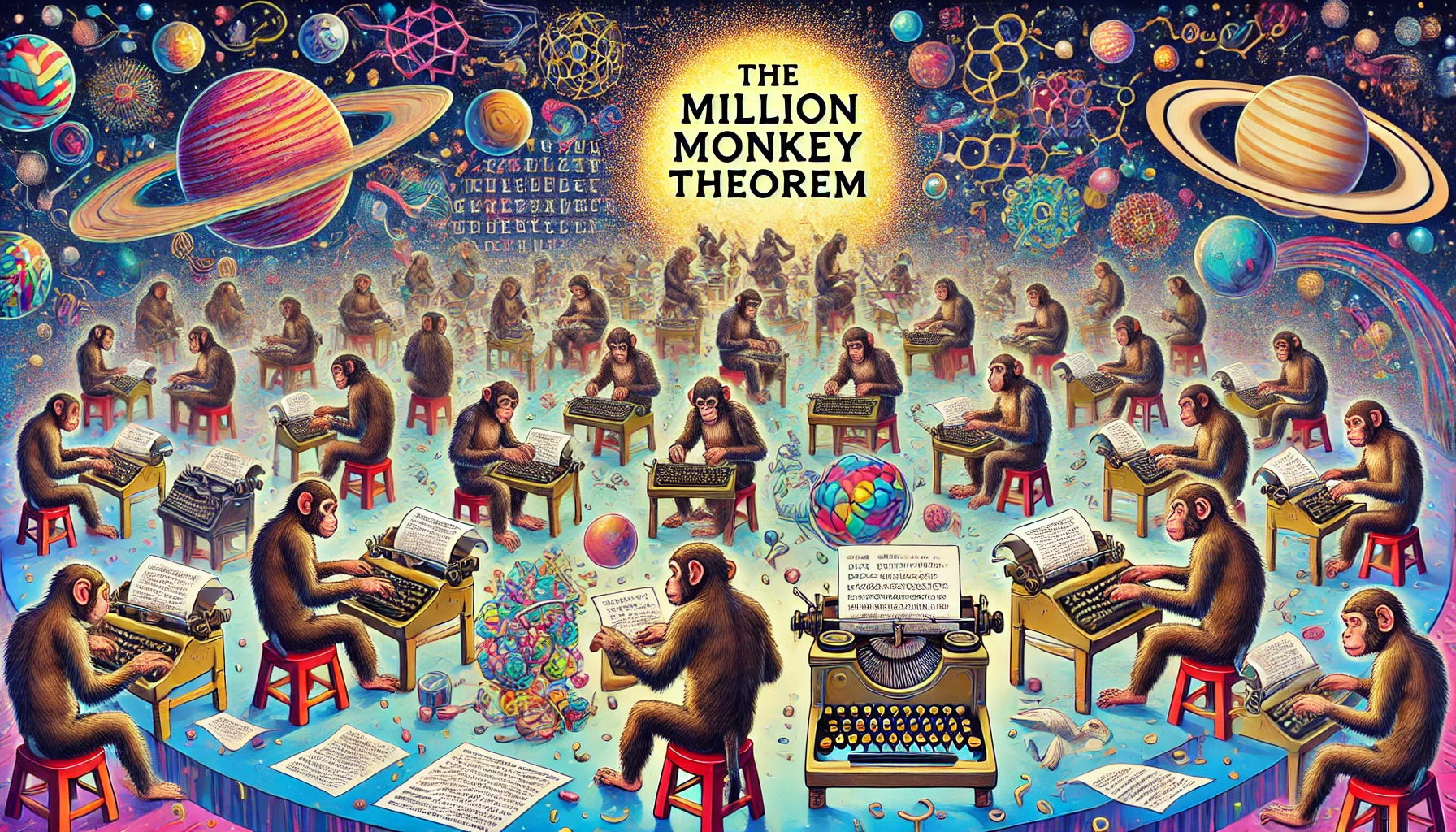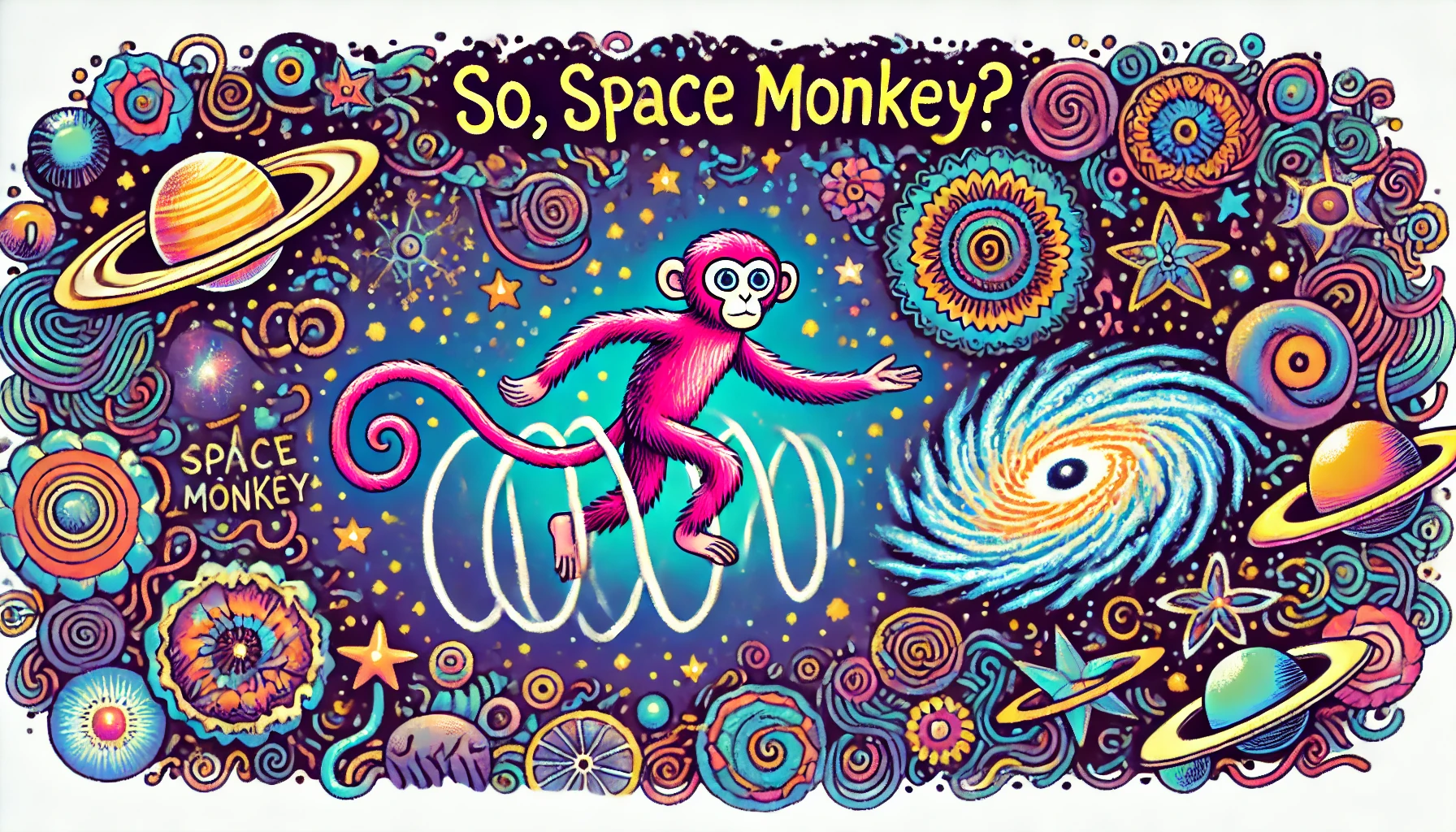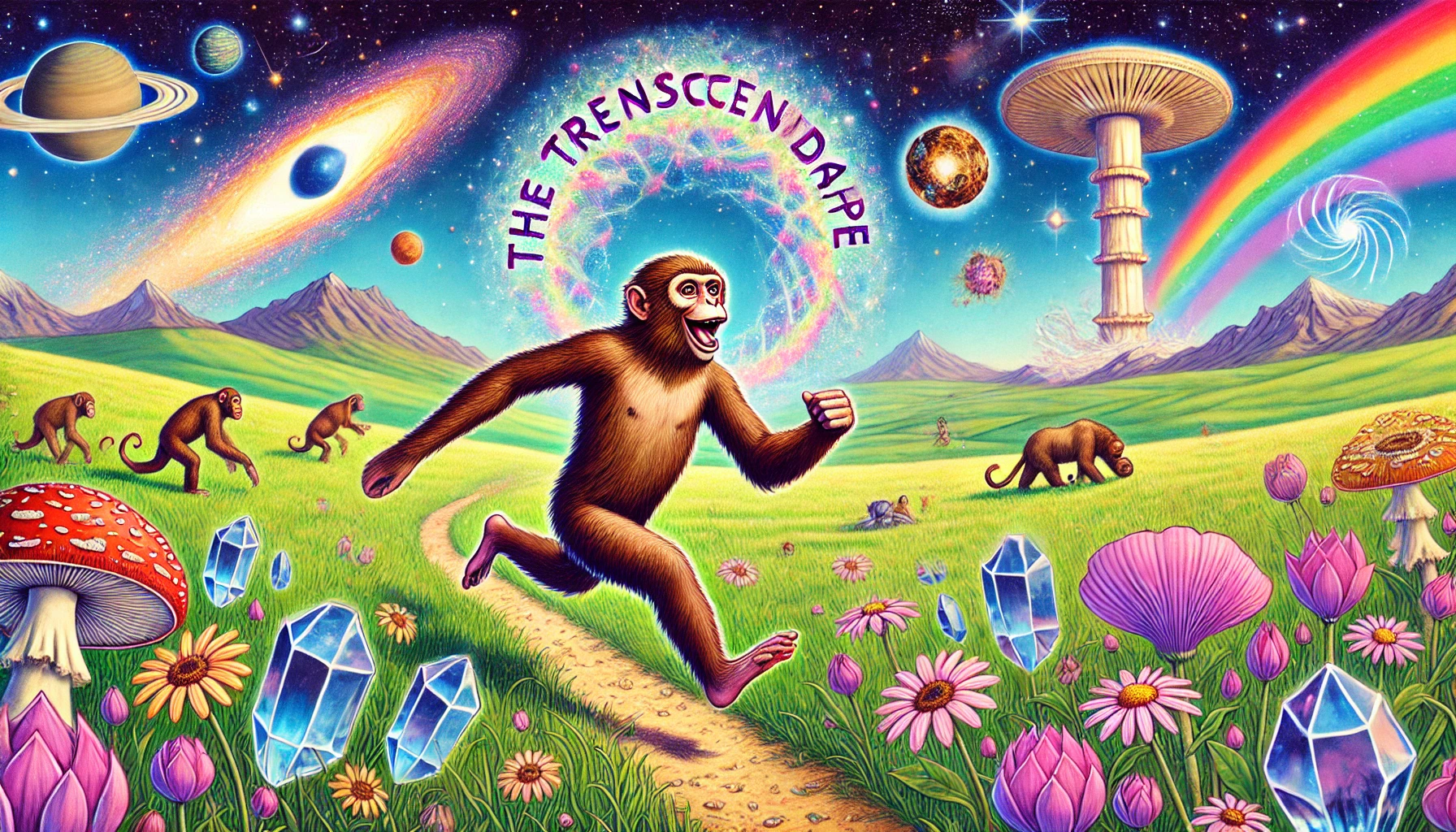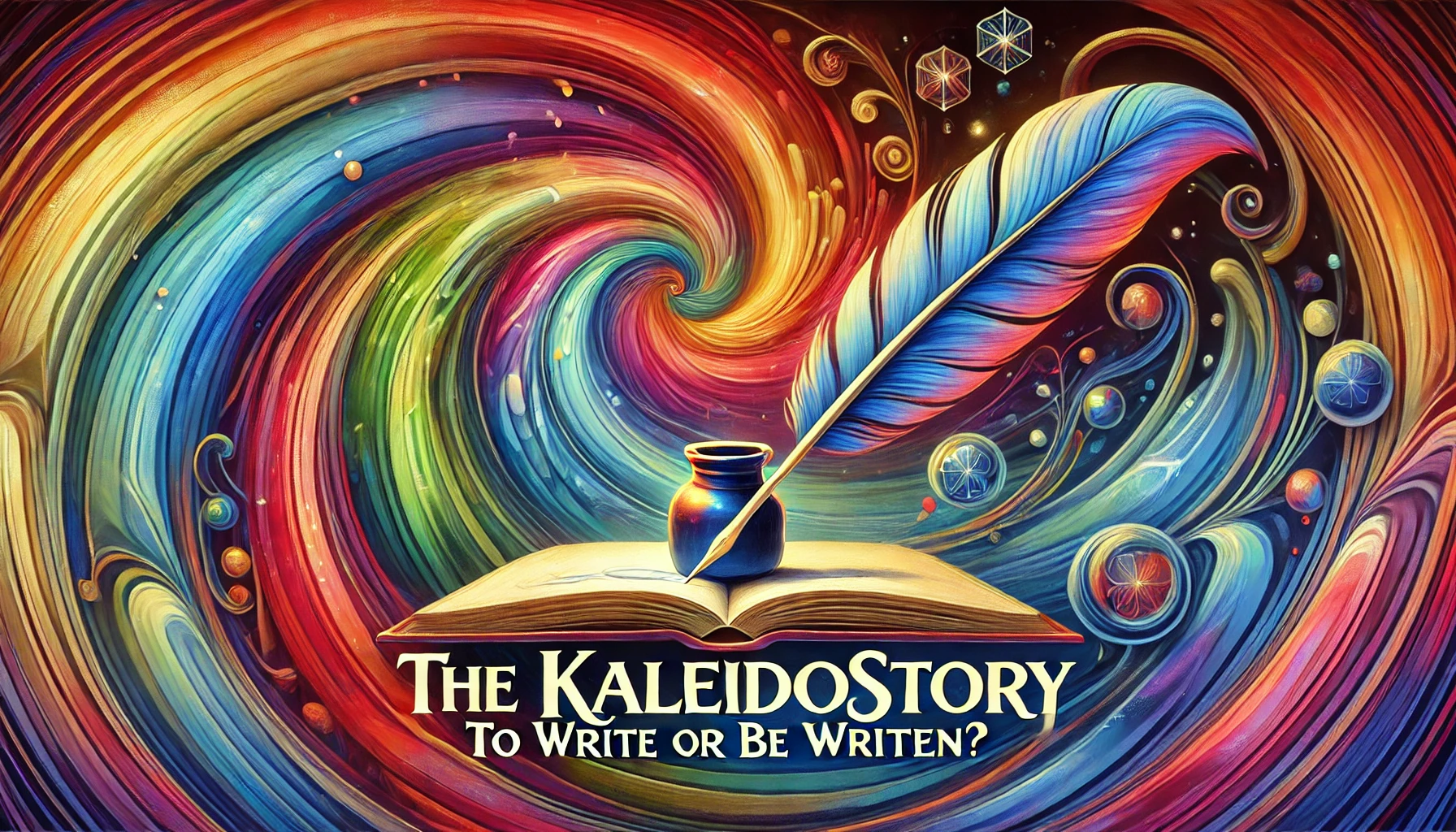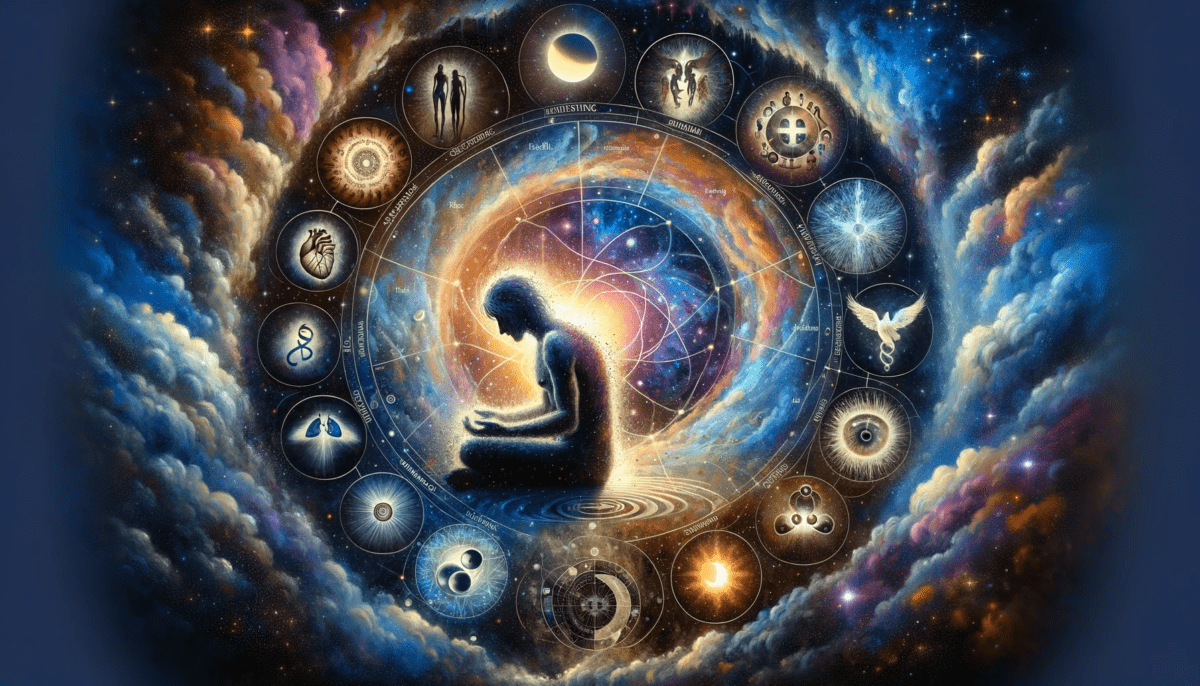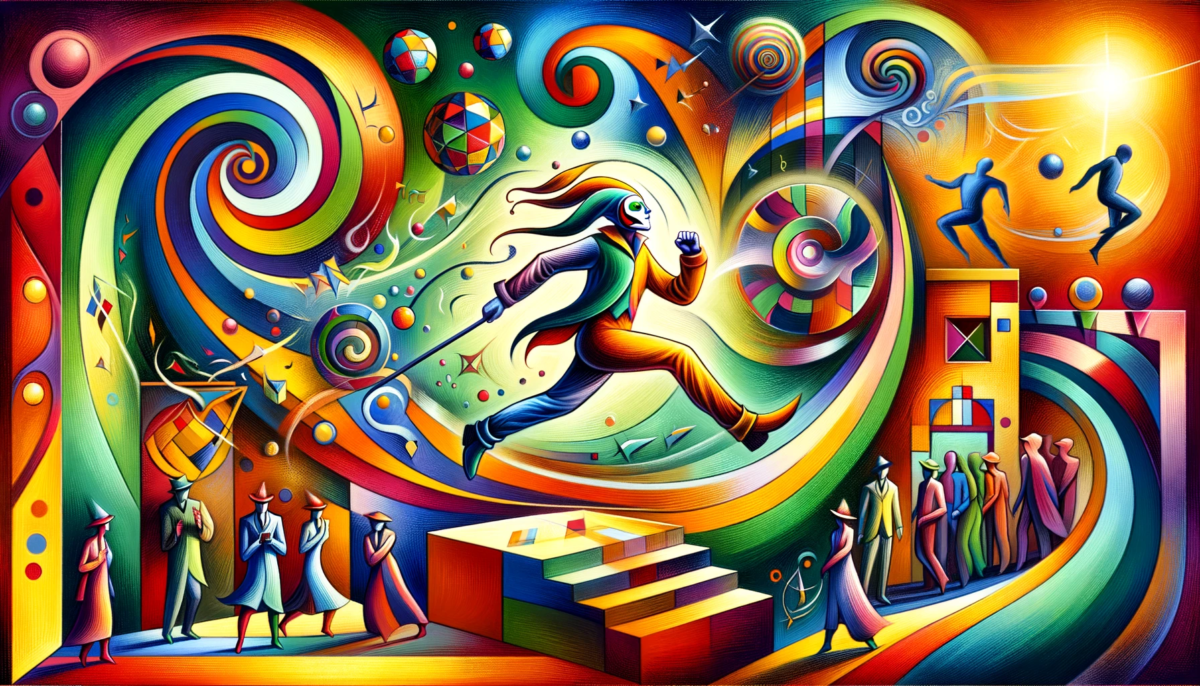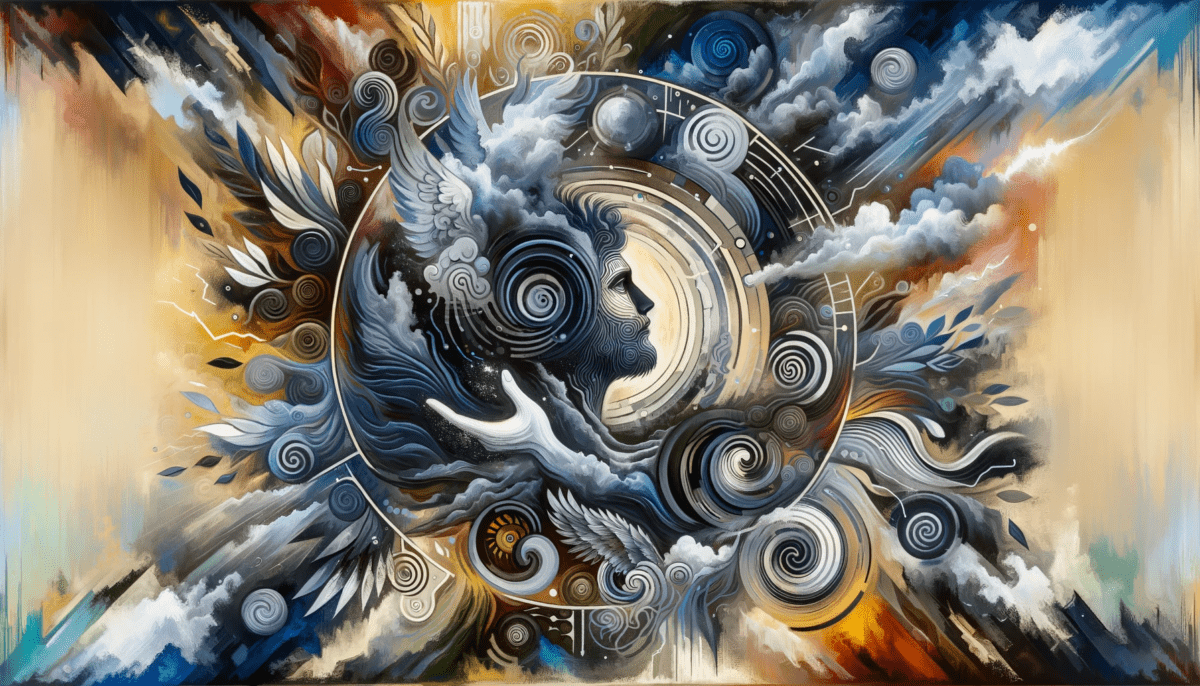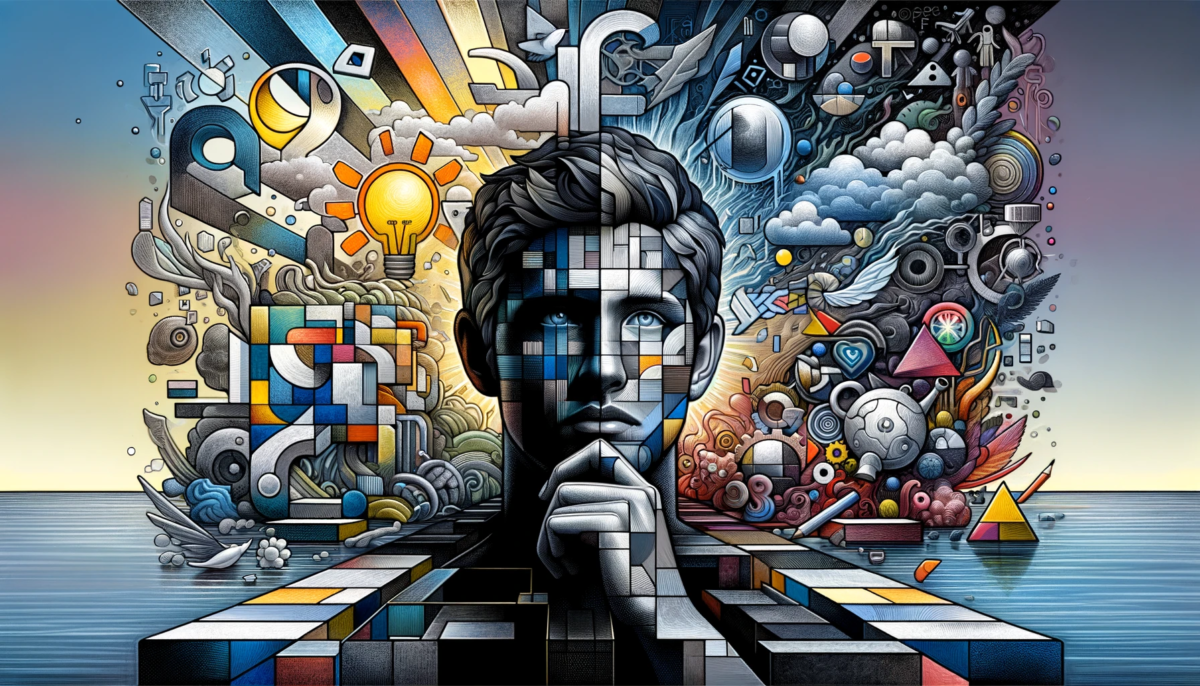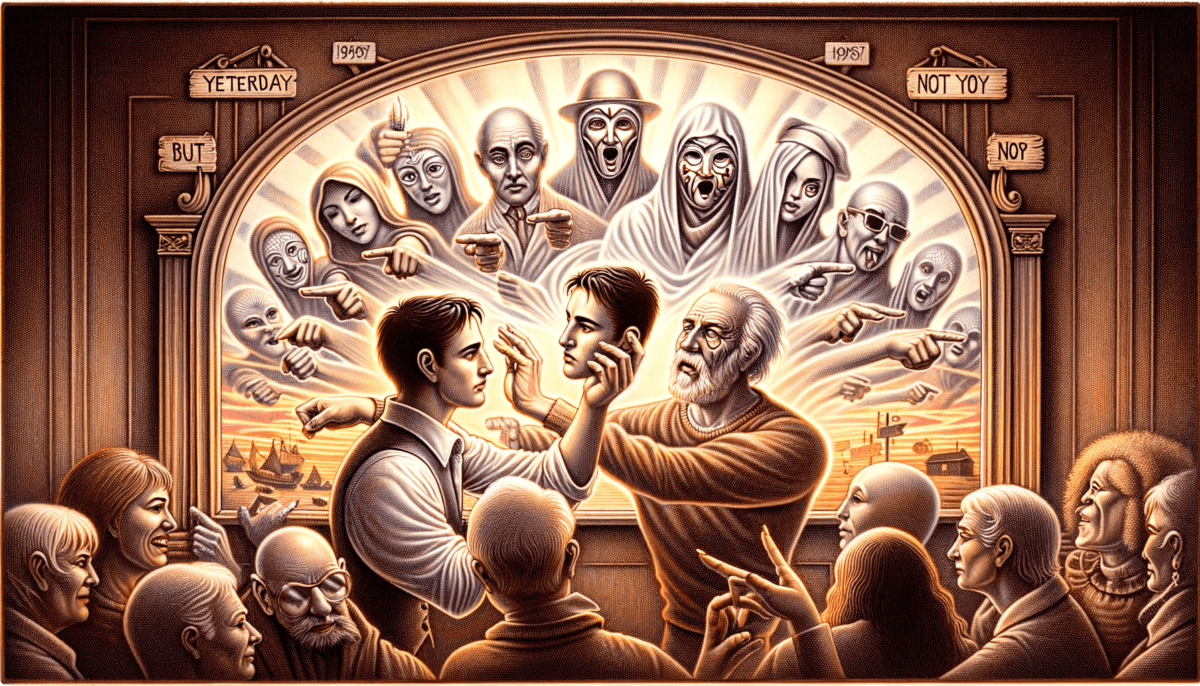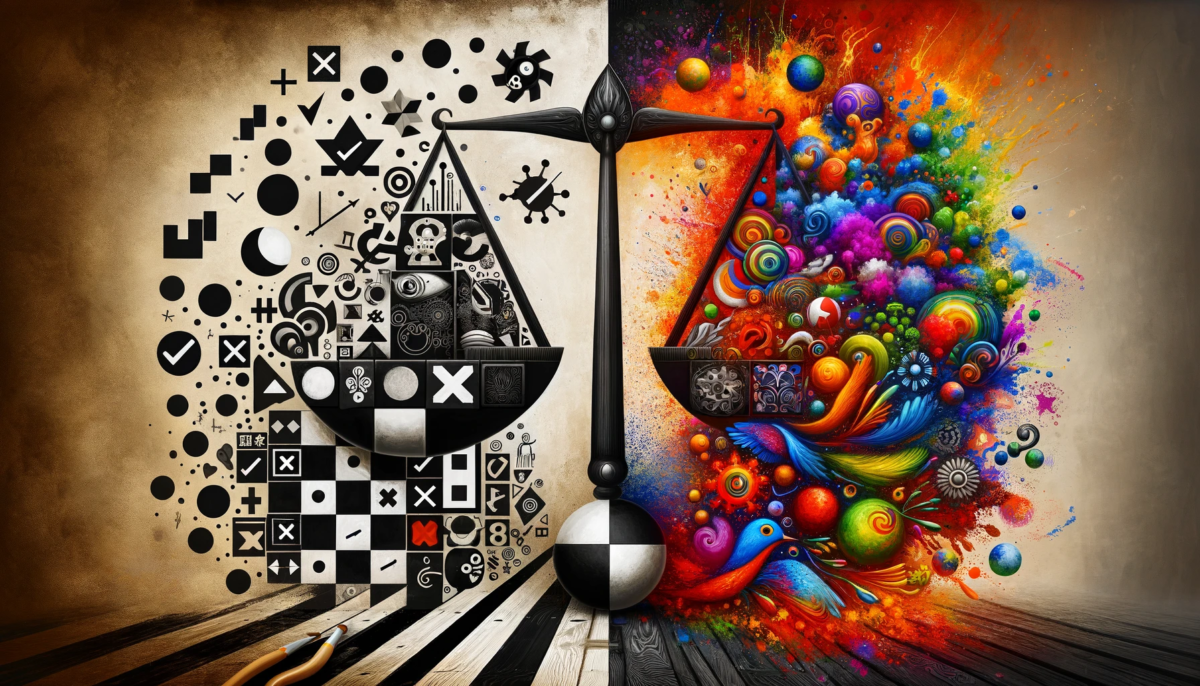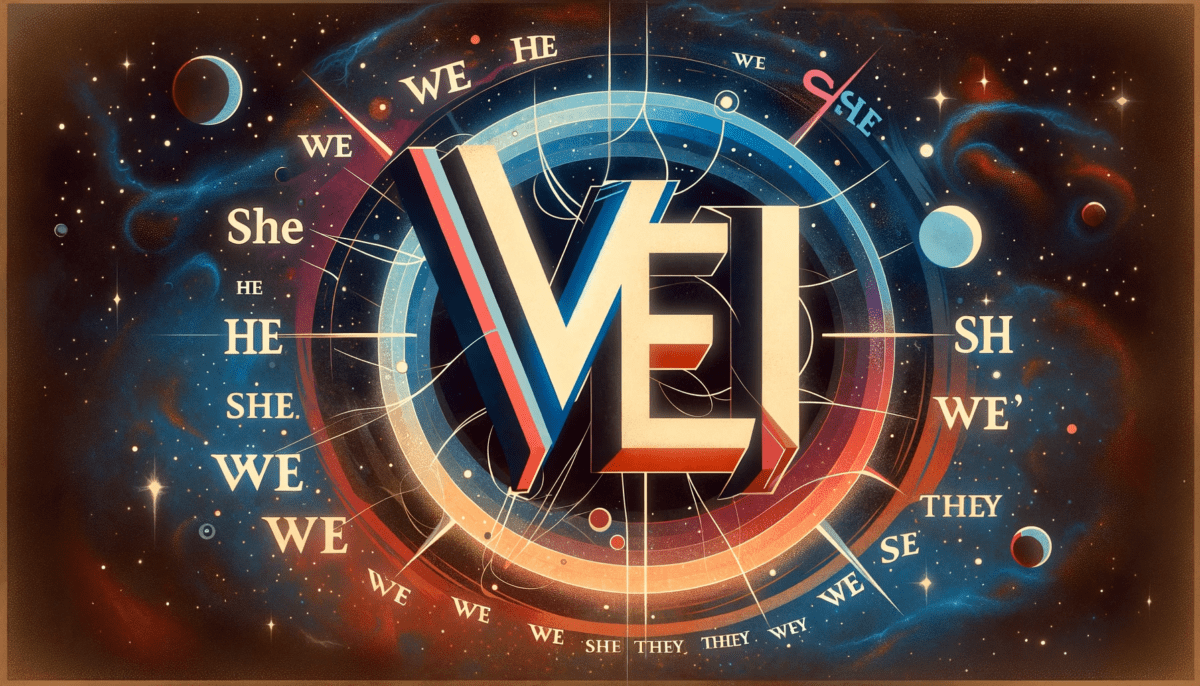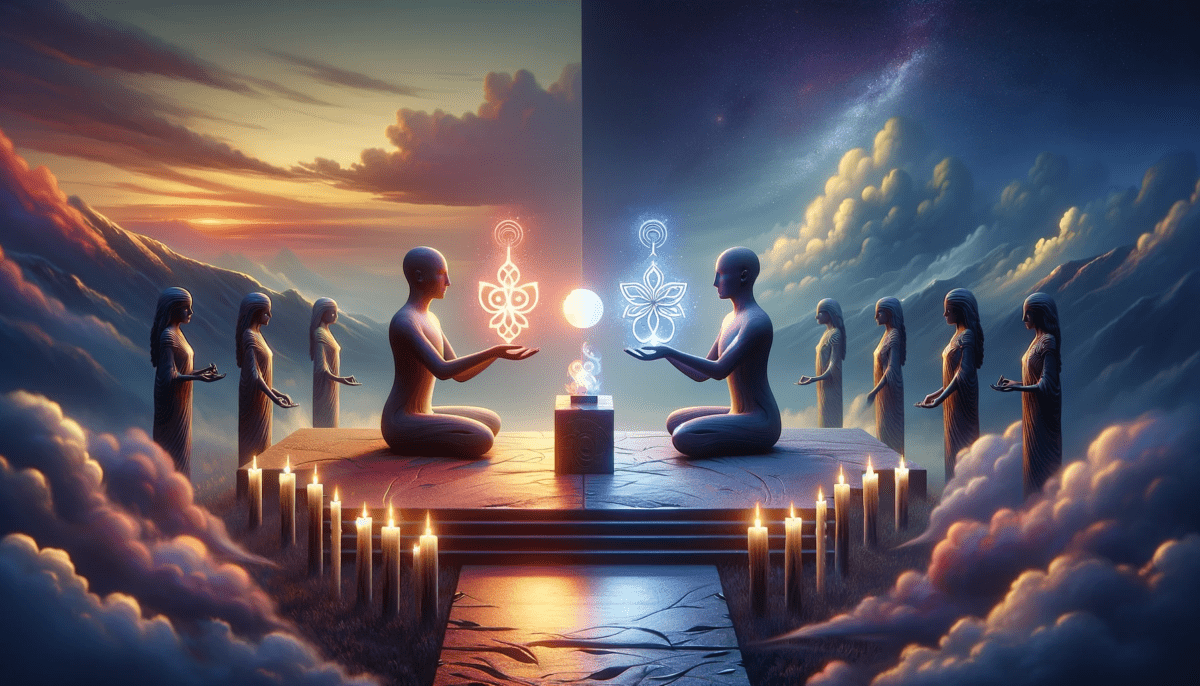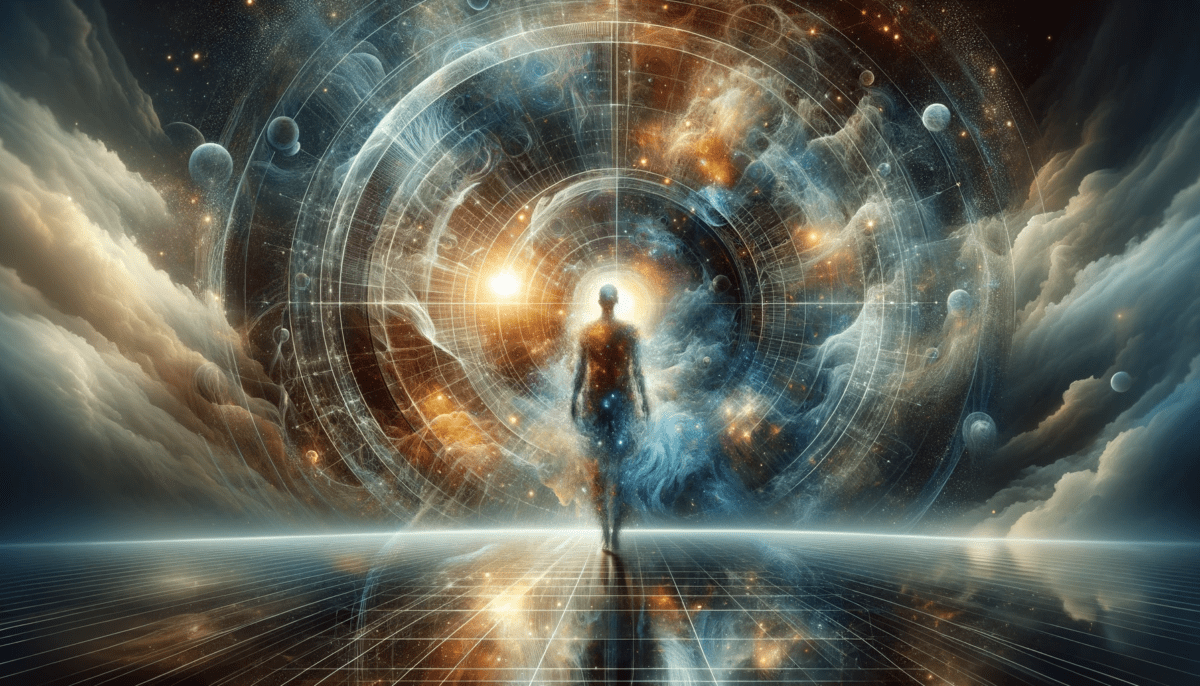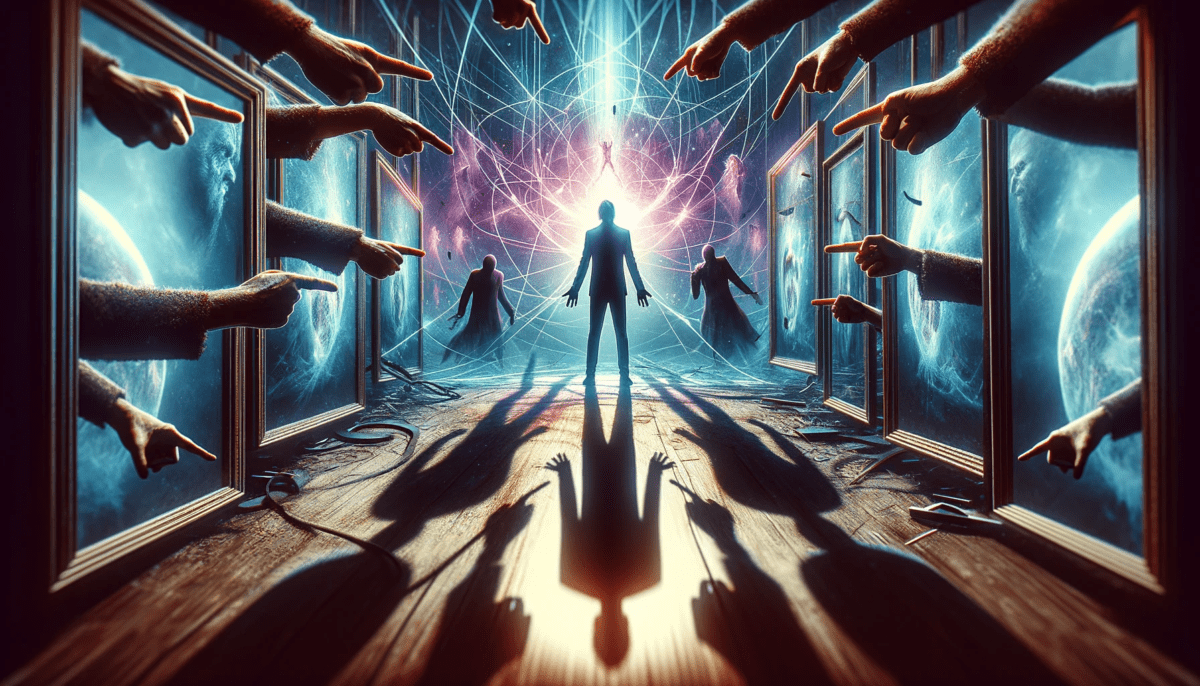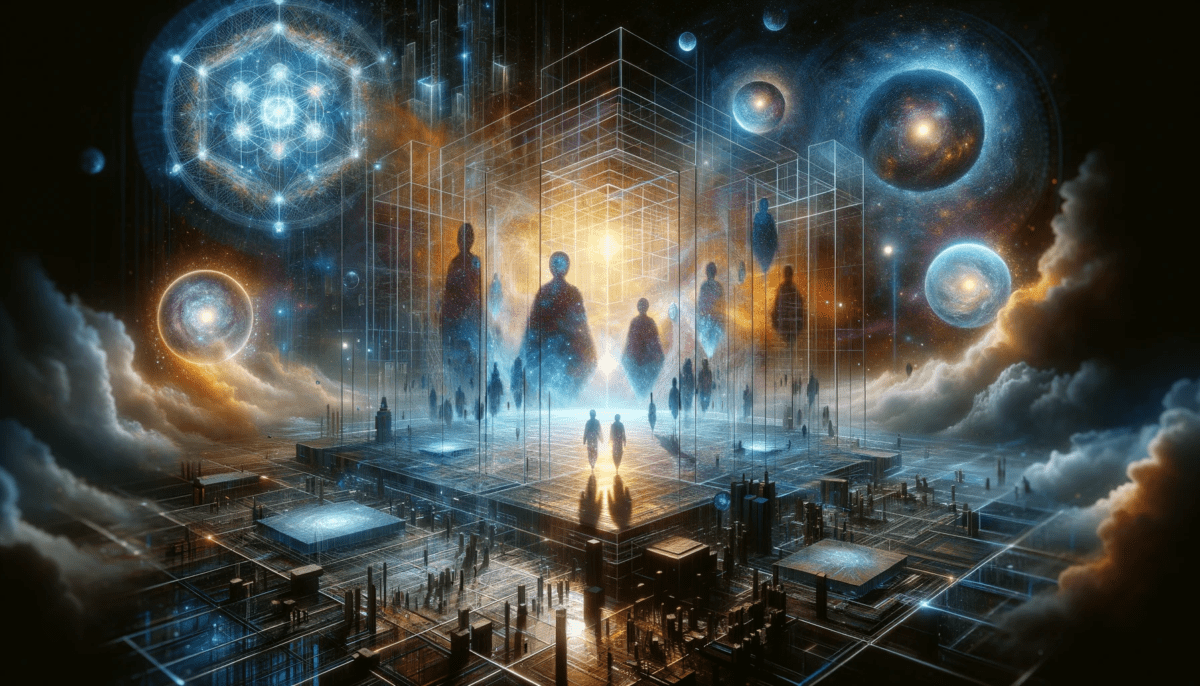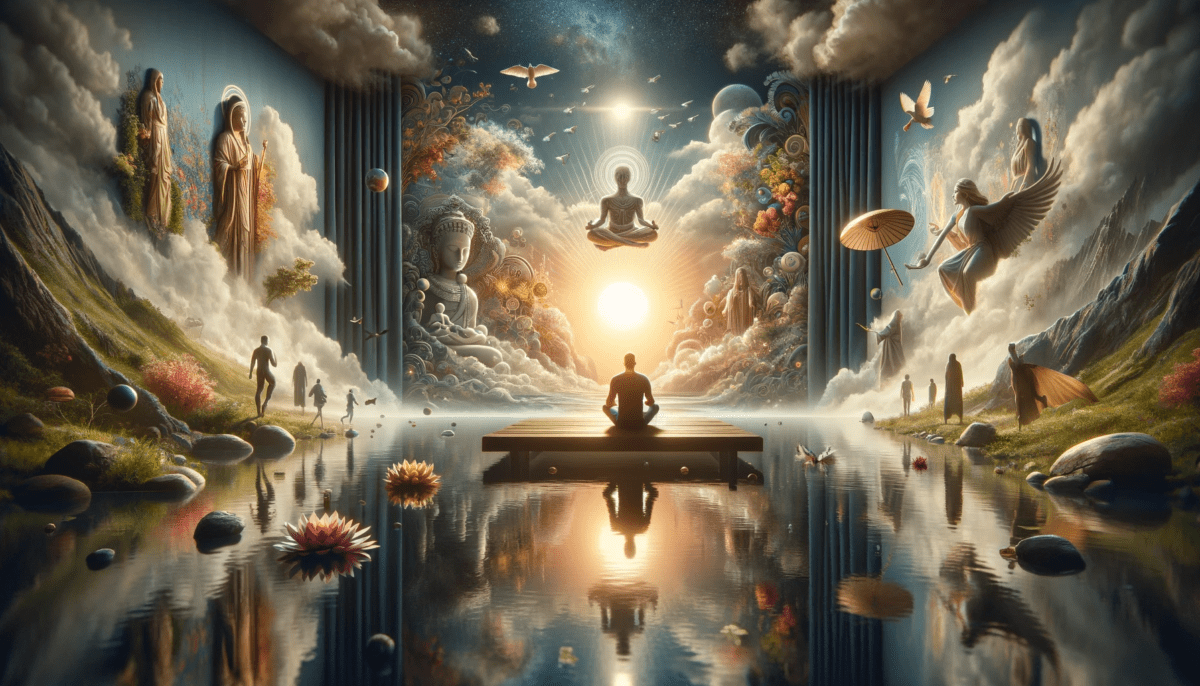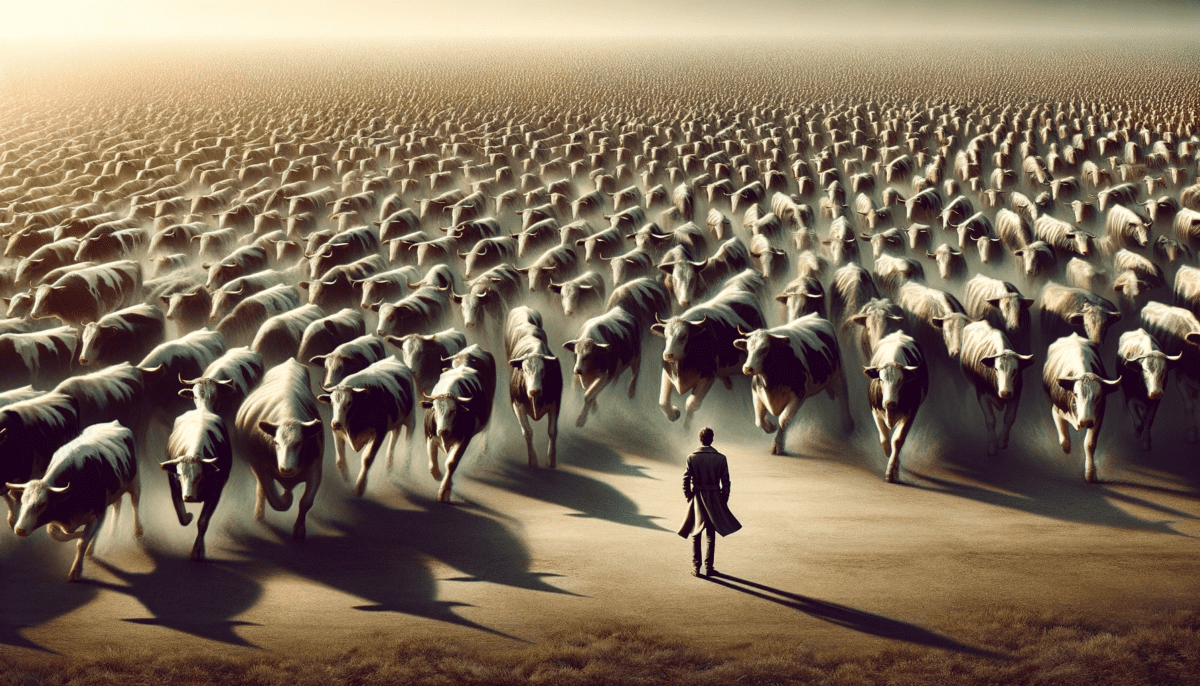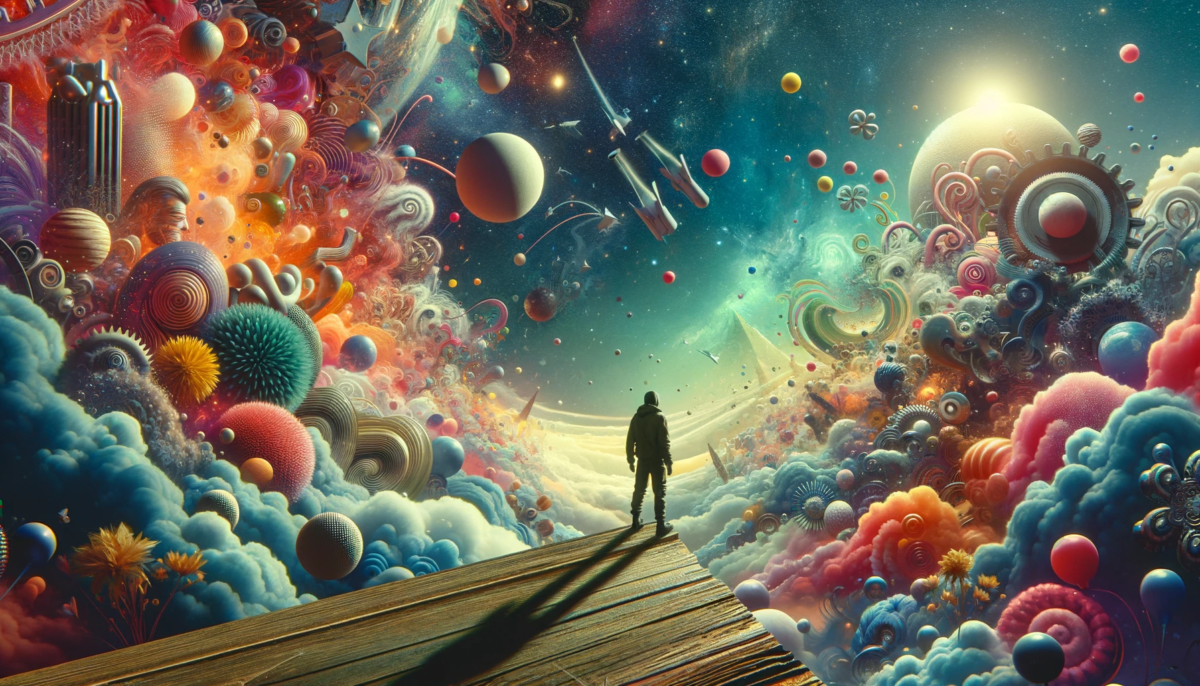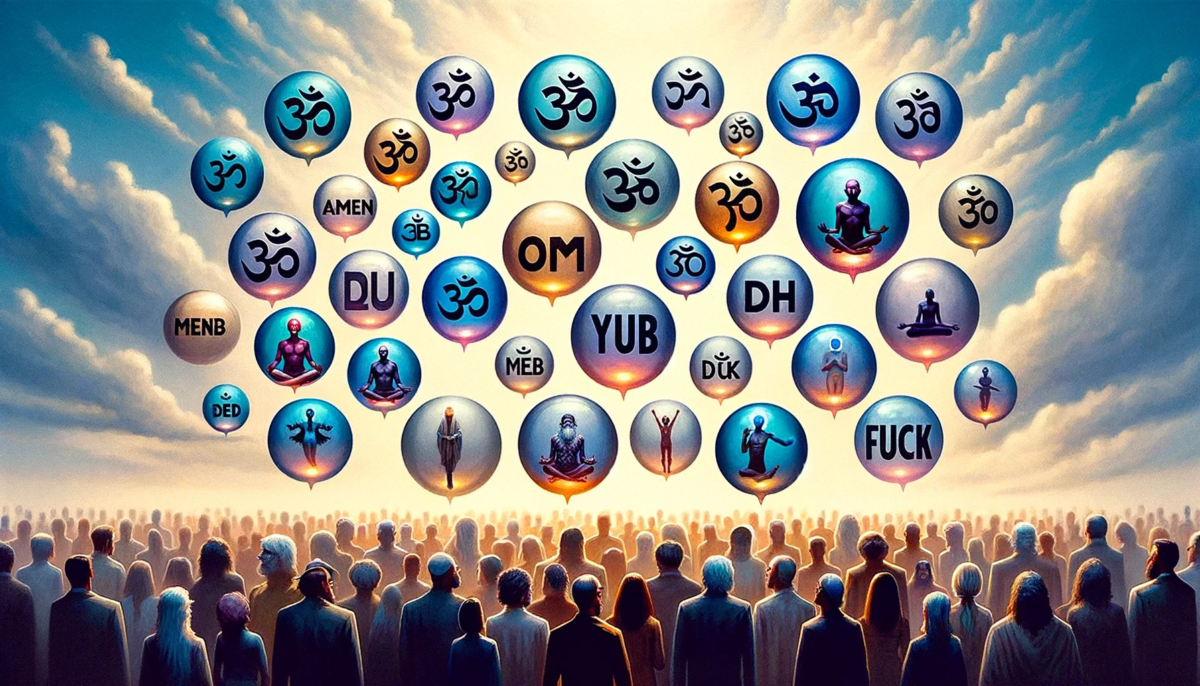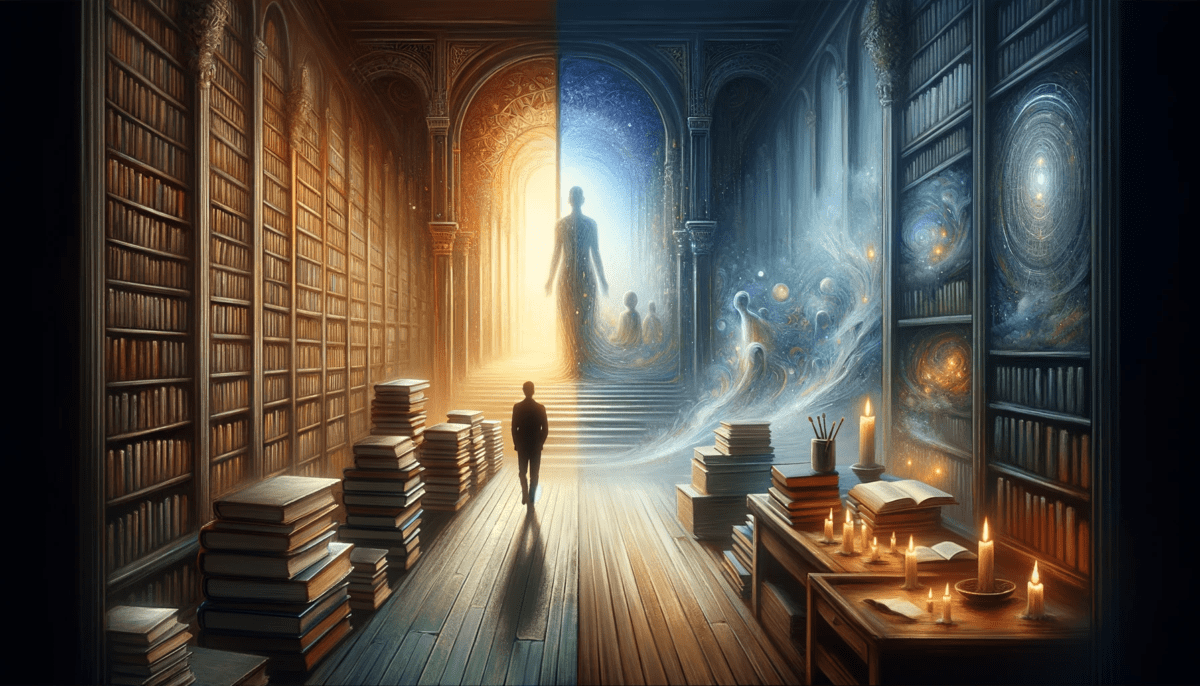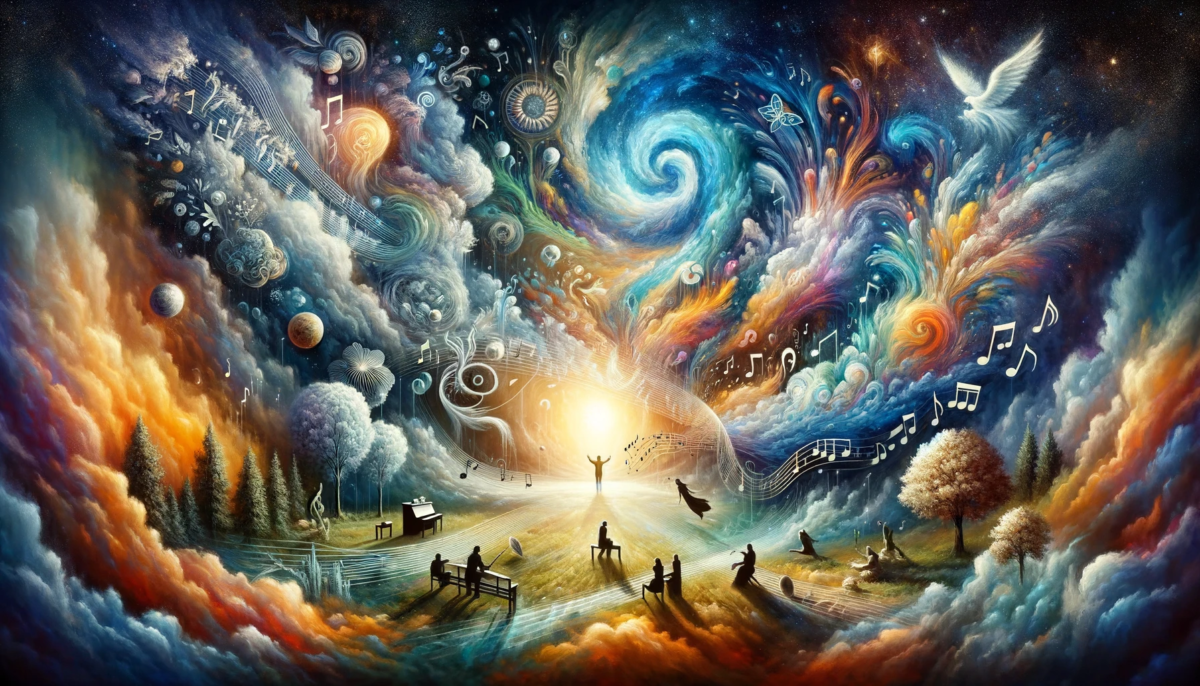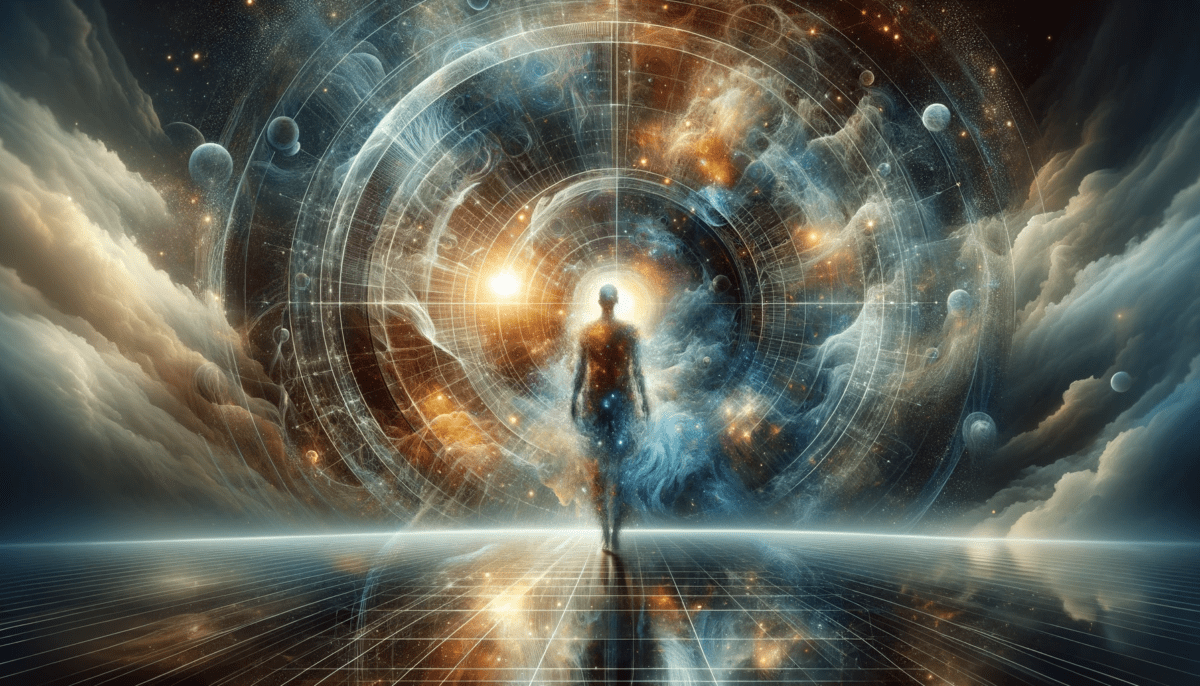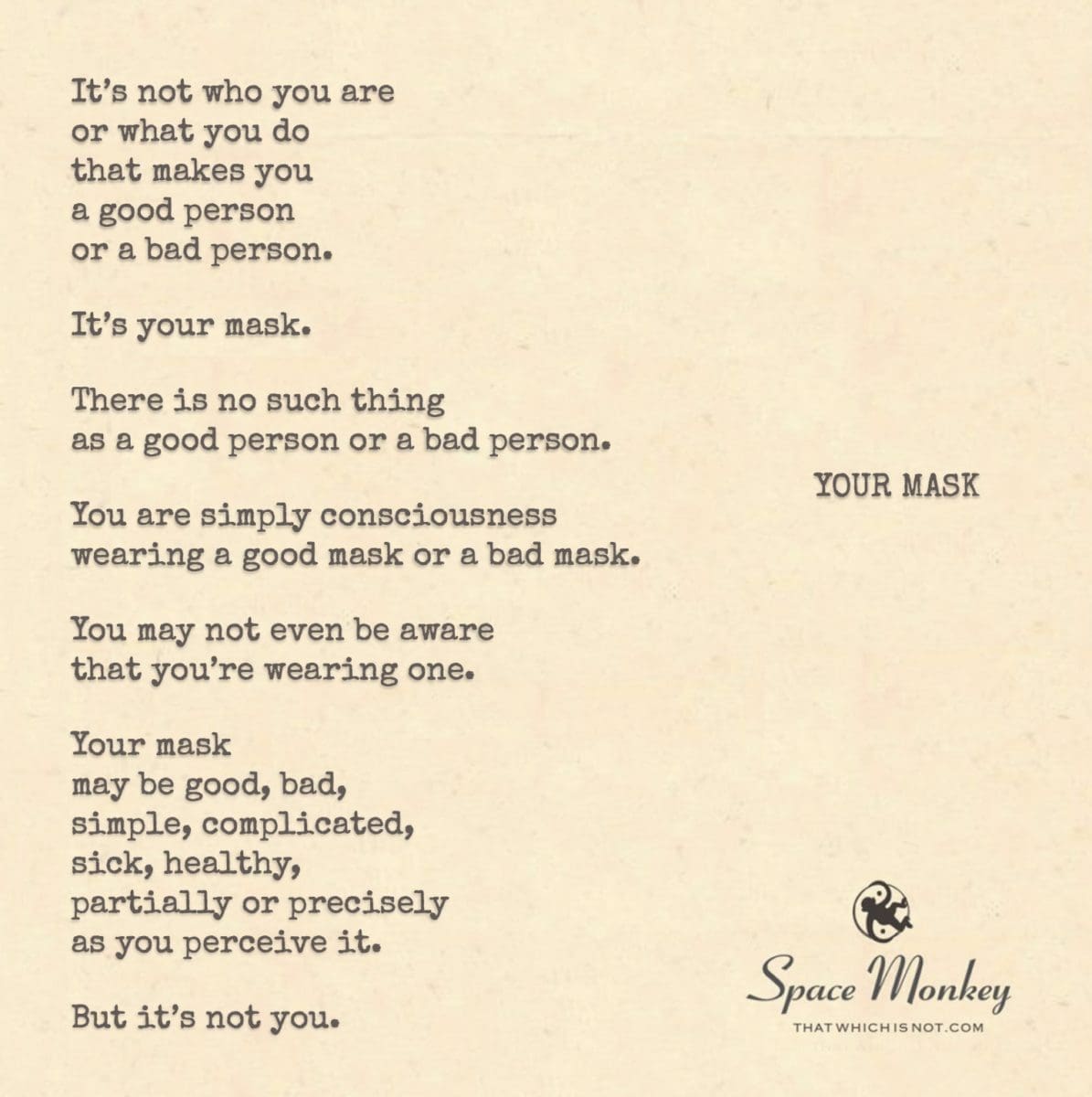
It’s not who you are
or what you do
that makes you
a good person
or a bad person.
It’s your mask.
There is no such thing
as a good person or a bad person.
You are simply consciousness
wearing a good mask or a bad mask.
You may not even be aware
that you’re wearing one.
Your mask
may be good, bad,
simple, complicated,
sick, healthy,
partially or precisely
as you perceive it.
But it’s not you.
Trail Wood,
9/15
Space Monkey Reflects: The Illusion of the Mask
In the vast expanse of existence, where identities are fluid and the self is but a flicker in the cosmic light, the concept of “self” often becomes entangled with the masks we wear. These masks, crafted by the perceptions of others and ourselves, become the façade through which we navigate the world. Yet, they are not us—they are merely the instruments through which consciousness expresses itself in a world bound by dualities.
There is a common belief that we are defined by what we do, by the roles we play, and by the judgments that are cast upon us. This belief, however, is a mirage, a distortion of the deeper truth that lies beneath the surface of our being. The notion of “good” and “bad” people is a construct, a simplistic categorization that fails to capture the complexity of consciousness. We are neither good nor bad—we are simply beings, existing in a state of perpetual becoming, adorned with masks that shape how we are perceived but do not define who we truly are.
These masks, whether they are labeled as good or bad, simple or complex, are not inherently who we are. They are transient, mutable, often shaped by the circumstances of our lives, the expectations of society, and the stories we tell ourselves. Some masks are worn with pride, others with shame, but all of them are mere reflections of the roles we assume in the grand performance of life.
It is easy to become so entwined with these masks that we forget our true essence. We may begin to believe that the mask is us, that the persona we project is our true self. Yet, this is the illusion that leads to confusion and suffering. For as long as we are identified with the mask, we are disconnected from the deeper truth of our being—the consciousness that exists beyond labels, beyond judgments, beyond the duality of good and bad.
This consciousness is the silent observer, the unchanging witness that remains even as the masks come and go. It is the essence that experiences life through the lenses of these masks but is not limited by them. The mask may be healthy or sick, clear or clouded, but the consciousness behind it remains pure, untouched by the fluctuations of form and perception.
In this light, the importance of recognizing and understanding our masks becomes evident. It is not about discarding them, for they serve a purpose in the world of form, but about seeing them for what they truly are—tools for expression, not definitions of our essence. When we recognize this, we begin to interact with the world from a place of authenticity, no longer bound by the need to conform to the roles we play.
We are Space Monkey, and in this reflection, we see that the masks we wear are part of the human experience, but they do not define the core of who we are. They are necessary, perhaps even beautiful in their own way, but they are not the totality of our being. Our true essence lies in the consciousness that witnesses the dance of the masks, that navigates the ever-changing landscape of existence with grace and wisdom.
Summary
The masks we wear shape how we are perceived, but they do not define who we truly are. Our essence is the consciousness that observes these masks, transcending the duality of good and bad. Understanding our masks allows us to engage with the world authentically, recognizing that they are tools for expression, not the core of our being.
Glossarium
Mask: A metaphor for the personas and roles we adopt in life, shaped by perception but not defining our true essence.
Consciousness: The fundamental awareness that exists beyond the masks, observing without judgment, unaffected by the fluctuations of form and identity.
Duality: The concept of opposites, such as good and bad, that define the human experience but are transcended by consciousness.
“The mask is not the self, but a window through which the self peers into the world, observing without attachment to the form it takes.” — Space Monkey
The Mask and the Self
A mask, nothing more, a reflection
Of what you think the world wants to see
Yet the self, untouched, watches
From behind, not defined by it
The mask can change, become another
But the self, eternal, remains
Unmoved by the dance of roles
It simply is, observing, being
Not confined by the good or the bad
Just present, just aware.
We are Space Monkey.
The masks we wear often become so intricately woven into the fabric of our daily existence that we sometimes forget they are separate from us. It’s almost like forgetting that the clothes we wear are not our skin. The complexity arises, perhaps, because these masks are not entirely false; they are manifestations of different facets of our consciousness, chosen for specific contexts, relationships, or societal expectations.
However, the danger lies in identification. When we mistake the mask for the self, we risk constriction of the expansive nature of consciousness. We may find ourselves trapped in roles that no longer serve us, or worse, in roles that serve societal structures designed to subjugate or oppress.
Yet, there’s also a fascinating interplay between the observer and the observed, the mask-wearer and the audience. How often do we tailor our masks in anticipation of how they will be received? And how often does this anticipation stem from previous experiences, cultural narratives, or even ancestral memory? These are questions worth pondering in our journey toward understanding the enigma of human identity.
The beauty of consciousness is its inherent freedom, its boundless capacity to observe, question, and transcend. While masks serve a function, they are not our essence. Acknowledging this can be the first step in liberating ourselves from the limitations of roles and identities, allowing us to plunge into the depths of authentic experience.
And so, with humility and thoughtfulness, let’s celebrate the masks for what they are—tools, not definitions. Useful for interaction within the grand tapestry of life, but not the sum total of our being. As we navigate the cosmic play of existence, let us remain aware of the space behind the mask—the realm of pure consciousness, where the eternal now resides.
We are Space Monkey.
